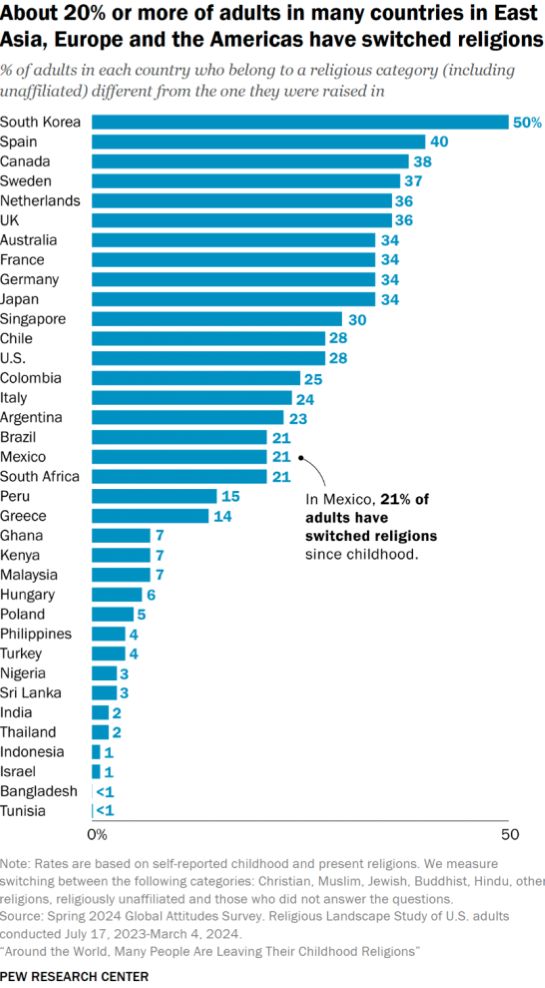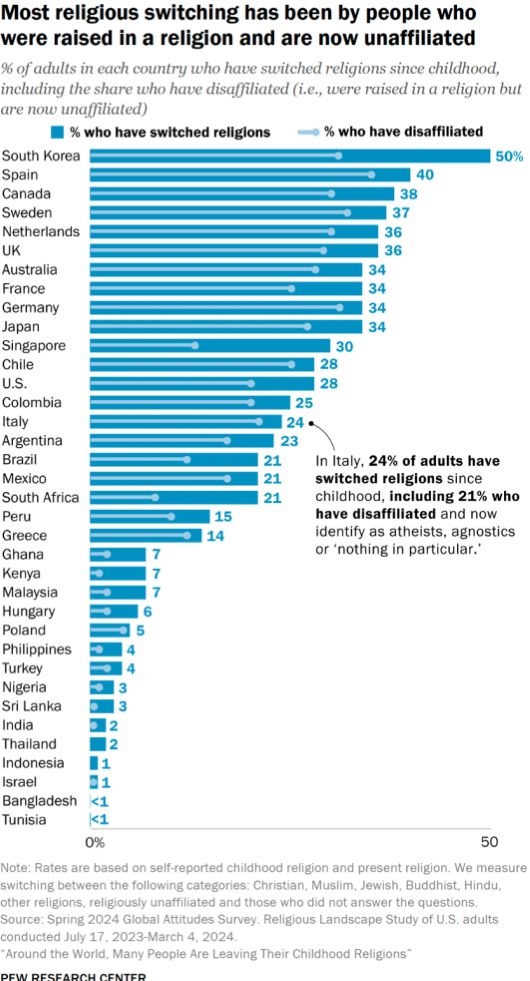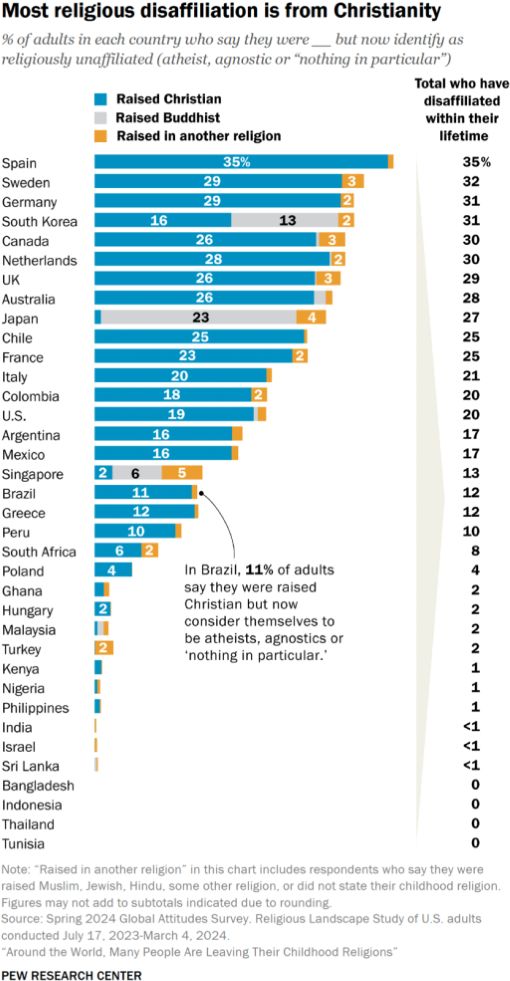

Christianity and Buddhism have the biggest losses from ‘religious switching’.
By Kirsten Lesage, Kelsy Jo Starr, and William Miner
In many countries around the world, a fifth or more of all adults have left the religious group in which they were raised. Christianity and Buddhism have experienced especially large losses from this “religious switching,” while rising numbers of adults have no religious affiliation, according to Pew Research Center surveys of nearly 80,000 people in 36 countries.
Rates of religious switching vary widely around the globe, the surveys show.

In some countries, changing religions is very rare. In India, Israel, Nigeria and Thailand, 95% or more of adults say they still belong to the religious group in which they were raised.
But across East Asia, Western Europe, North America and South America, switching is fairly common. For example, 50% of adults in South Korea, 36% in the Netherlands, 28% in the United States and 21% in Brazil no longer identify with their childhood religion.
Which religions are people switching to?
Most of the movement has been into the category we call religiously unaffiliated, which consists of people who answer a question about their religion by saying they are atheists, agnostics or “nothing in particular.”
In other words, most of the switching is disaffiliation – people leaving the religion of their childhood and no longer identifying with any religion.

Many of these people were raised as Christians. For example, 29% of adults in Sweden say they were raised Christian but now describe themselves religiously as atheists, agnostics or “nothing in particular.”

Buddhism also is losing adherents through disaffiliation in some countries. For example, 23% of adults surveyed in Japan and 13% in South Korea say they were raised as Buddhists but don’t identify with any religion today.
However, not all switching is away from religion. Some people move in the opposite direction. Of the 36 countries surveyed, South Korea has the highest share of people who say they were raised with no affiliation but have a religion today (9%). Most of them (6% of all South Korean adults) say they had no religious upbringing and are now Christian.
Additionally, about one-in-ten or more adults in Singapore (13%), South Africa (12%) and South Korea (11%) have switched between two religions.
While these figures reflect religious trends in the 36 countries included in the survey, they are not necessarily representative of the entire world’s population. Christianity – the world’s largest and most geographically widespread religion, by Pew Research Center’s estimates – is either the current majority faith or historically has been a predominant religion in 25 of the countries surveyed.
Islam, the world’s second-largest religion, is a historically predominant religion in six of the 36 countries surveyed: Bangladesh, Indonesia, Malaysia, Nigeria, Tunisia and Turkey. (We consider both Christianity and Islam to predominate in Nigeria, which is closely divided religiously.)
Buddhism has been predominant in five other countries surveyed: Japan, Singapore, Sri Lanka, South Korea and Thailand. (We also count South Korea as having two predominant religions, Buddhism and Christianity.)
Hinduism and Judaism are each the predominant religion in just one country surveyed (India and Israel, respectively).
READ ENTIRE ARTICLE AT PEW RESEARCH CENTER


